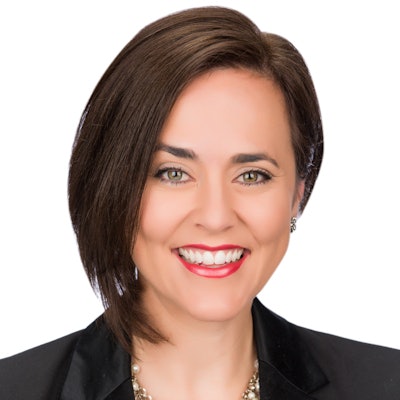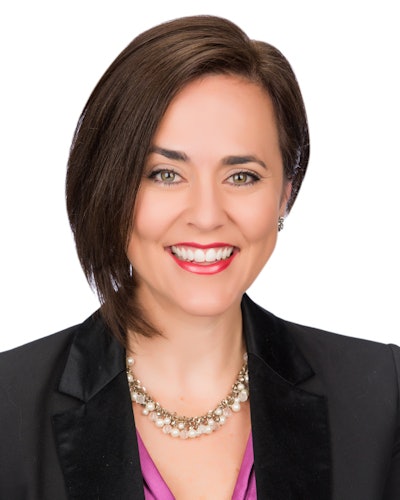
As dental practices begin to reopen, thought processes are changing. Dentists and team members in many parts of the U.S. have morphed from thinking about what's to come to homing in on what is happening around them right now.
With the thought of focusing on recovery and planning near- and long-term goals for success in 2020, I reached out to Carrie Webber, co-owner of Jameson Management who also serves as the company's chief communications officer. With communication and planning skills perhaps more necessary than ever in our industry, it was a great time to pick Webber's brain on what she is hearing from dental practices around the country, as well as what she and her company are offering them in terms of advice.
Below is a portion of our interview. You can watch the full interview, which lasts just under 20 minutes, via our collection of interviews with many experts in the industry on a variety of timely topics.
Q: Many practices are entering the recovery phase of this pandemic's effects, so let's talk a little bit about reorganization for that recovery. What are some of the best tips that you and Jameson Management are sharing with clients as they move forward and welcome back their patients?
A: Something that I think we need to remember right now is a piece of perspective from before all of this happened. During those days, our patients' biggest concerns were the obstacles of cost, time, convenience, and fear. Those things were keeping patients from coming into the practice and getting the care they wanted or needed.
 Carrie Webber of Jameson Management.
Carrie Webber of Jameson Management.Those were the biggest issues before COVID-19. Now amplify that under the magnifying glass of coronavirus and think about it. With that in mind, right now, it's really about being proactive versus reactive.
It's important that dentists become as effective and confident as communicators as possible, both for our teams and the patients. That way, there's a greater level of understanding of what to expect and what the patient's perception is going to be. And you can make sure there is a partnership in feeling comfortable, feeling safe, and, for patients, being interested in taking that place in the schedule that you're ready to fill for their care.
How can we be proactive? Let's get in front of these issues and get comfortable with talking about them with the patients. How are we putting processes into place for communicating to our patients about the steps we're taking to keep them safe and what they can expect in their appointments to make sure they feel safe?
Of course, there's the thought of money in the patient's mind as well. I read your interview with Lois Banta, and I absolutely recommend everyone read that to get some ideas for communicating about money. When we have a plan and are confident in it, we won't be worried or afraid to face those money conversations head on. Patients are going to appreciate that.
When you're leading through a crisis, you should speak to the concerns because then I, as a patient or as a team member, feel heard and understood. I also see that you see where I am in this seemingly ever-changing equation.
Q: So you believe dentists have to connect with their patients emotionally now more than ever if they want their patients to feel comfortable and feel like it's time to take that next step by returning and accepting treatment?
A: You know there's a diagram that shows the attitude bell curve. On it, you see how people's attitudes are prevalent in society.
You're going to have a small group who are the early adopters. These are your patients who are like, "Get me in. I'm ready." Or team members who are like, "Just put me back in, coach. I'm ready to go."
You're also going to have the people who are on the other end. They are very resistant and aren't going to be interested in doing anything with your business any time soon.
However, you're also going to have this big chunk of people in the middle who need dentists to connect with them and be intentional in their communication and approach to educating them and helping them see for themselves that things are OK. Things like, this is how we're going to schedule this, and this is why it's going to look different.
Yes, this will take some time and practice for dentists and team members. It will also take understanding because, while we have been churning for practice stability, we're forgetting that, waiting in the wings, your patients are wondering what's going to happen to them and what they should expect.
Q: What are some of the biggest questions you think dentists and team members should be asking themselves right now?
A: For me, it starts with scheduling. What are the lengths of the appointments, and are you doing your due diligence to reach out to the experts who are telling us what we need to do in those appointments to keep all of us safe? Also, how are you confirming appointments and communicating to your patients about what they need to know before entering your practice? Have you written out that communication? Is it clear? Is it concise? Is it comforting? Is it from the patient's perspective or is it all about you? Remember, this can't be about the dental practice. It has to be about the customers and how safe and involved they are in their dental care.
I also think practices need to be asking about their patient financing options and making sure they're clear on what they are offering to customers who might be concerned about money. You also need to be asking yourselves if you're doing everything you can regarding infection control and prevention to keep everyone who comes through your doors safe.
Q: Any last pieces of advice?
A: Yes, one last thought to leave. Let's look at our processes and examine not only whether we are doing the best we can for the immediate urgent need but also ask ourselves how we can be better on the other side of this. As an industry, we've been through some flames but, because of the fire, every practice needs to see where these tests have made you stronger and better. See where this time of struggle has made you more relevant and how it has made you a more trusted source of care for your patients. That would be a great goal.
Carrie Webber is chief communications officer and co-owner of Jameson, a dental management, marketing, and hygiene coaching firm that helps dentists and teams become more productive, profitable, and ultimately more fulfilled in their practicing lives.
The comments and observations expressed herein do not necessarily reflect the opinions of DrBicuspid.com, nor should they be construed as an endorsement or admonishment of any particular idea, vendor, or organization.



















